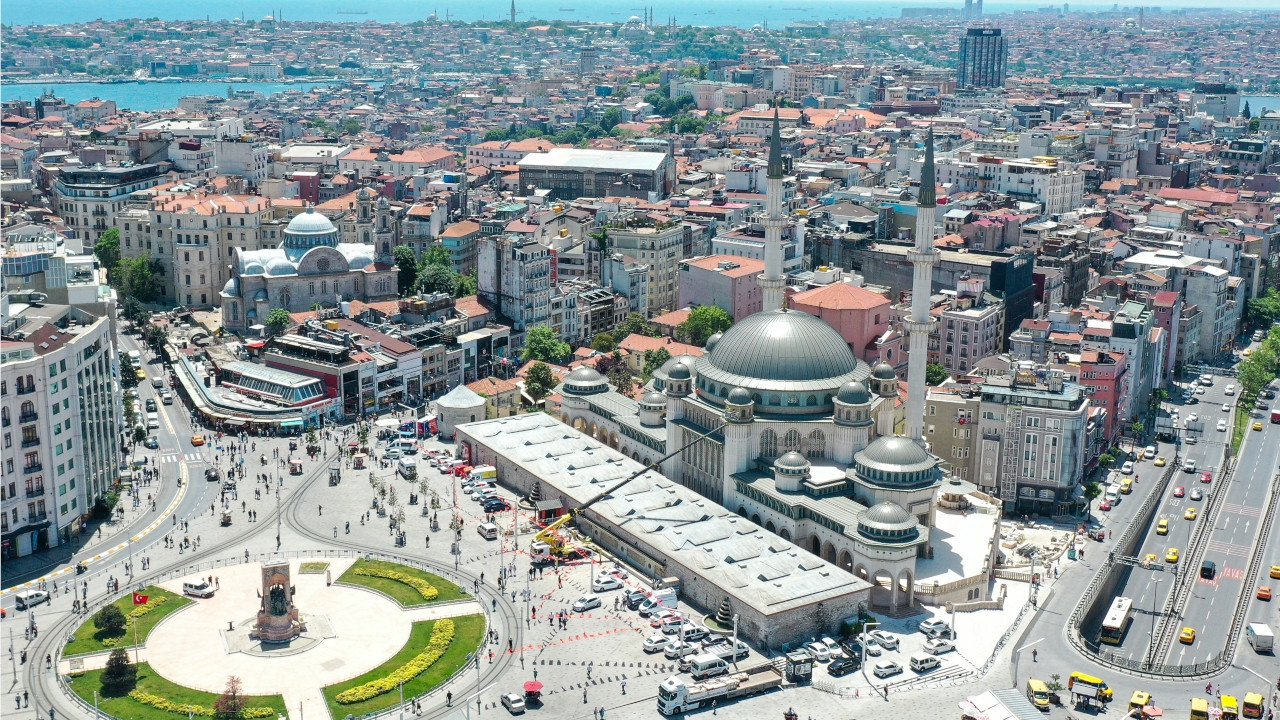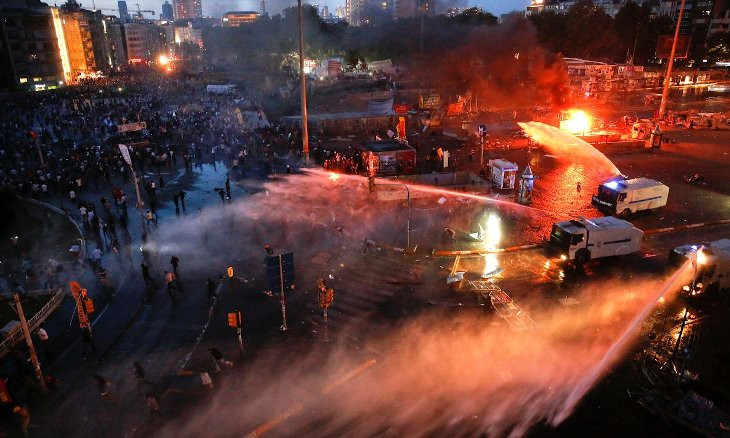Erdoğan inaugurates mosque at iconic Taksim Square on 8th anniversary of Gezi protests
Erdoğan inaugurated a 4,000-capacity mosque in Istanbul's iconic Taksim square on May 28, which coincides with the eight-year anniversary of Gezi Park protests. He has dreamed of building the mosque in the square since 1994 when he became the city's mayor.
Duvar English - Reuters
Turkish President Recep Tayyip Erdoğan on May 28 inaugurated an imposing new mosque in Istanbul’s iconic Taksim Square — which was also the site of the mass anti-government protests in 2013 sparked by the government’s construction plans at the adjacent Gezi Park.
The inauguration of the mosque coincides with the date when Gezi Park protests started.
The Gezi protests began on May 28, 2013 after demolition work began in one corner of the park the previous evening, knocking down a wall and some trees, drawing a small group of protesters who camped out at the site.
In June of that year, hundreds of thousands of people took to the streets in demonstrations against a plan to build a replica Ottoman barracks on Gezi Park.
After performing Friday prayers with thousands of worshippers, Erdoğan said completion of the mosque marked the culmination of a dream for Turks, and that the call to prayer would be heard there "until the end of time."
Erdoğan told crowds outside the mosque that before building work started four years ago there was not even a prayer room at the site. "Worshippers were trying to pray here on top of newspapers, literally like a hen-house," he said.
#TaksimCamii Açılış Programı https://t.co/kZzsxWIlJA
— Recep Tayyip Erdoğan (@RTErdogan) May 28, 2021
The Taksim mosque and its 30-meter high dome loom symbolically over a monument named after Turkish Republic's founder Mustafa Kemal Atatürk, whose staunchly secular legacy has been eroded by nearly two decades of Erdoğan's rule. The Atatürk Cultural Center was closed in 2008 under the pretense of restoration.

Construction of the mosque began in February 2017 in a project championed by Erdoğan, a devout Muslim, and his Islamist-rooted ruling Justice and Development Party (AKP), but which was beset for decades by court battles and public debate.
Officials on May 28 shared on Twitter a video showing Erdoğan in 1994, the year he became Istanbul mayor, pointing from the top of a building towards the area where he said he would build the mosque, the exact spot where it now stands.
It is one of many construction projects with which Erdoğan has left his mark on Turkey, including the Çamlıca Mosque overlooking the Asian side of Istanbul.
Last year he reconverted into a mosque the city's Haghia Sophia, for centuries the world's largest church before being turned into a mosque and museum in turn.
The ruling AKP argued that there were "not enough" Muslim places of worship close to one of the city’s busiest hubs. Opponents saw it as a bid to impose a religious tone on the square, featuring the Atatürk Cultural Center.
The mosque complex, with two towering minarets, will be able to host as many as 4,000 worshippers and includes an exhibition hall, a library, car park and soup kitchen.
Pro-government newspapers hailed the new mosque. Akçam's headline mocked critics who fear creeping religiosity: "It looks great. A mosque was built in Taksim and neither has sharia law come, nor has the republic collapsed," it said.

 Turkish top court finds rights violation in case of man who lost eye during Gezi Park protestsHuman Rights
Turkish top court finds rights violation in case of man who lost eye during Gezi Park protestsHuman Rights Thousands mark Gezi Park protests on seventh anniversaryHuman Rights
Thousands mark Gezi Park protests on seventh anniversaryHuman Rights